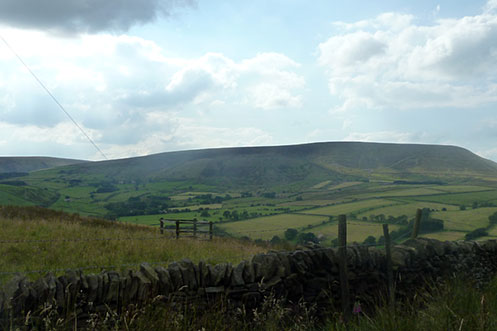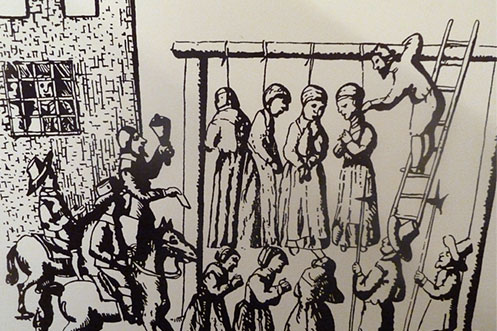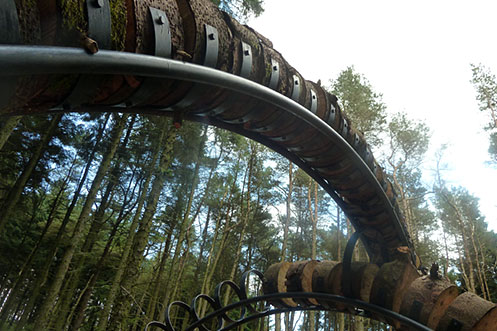When the team at Visit England invited me on a trip to Lancashire to trace the steps of the Pendle Witches I was pretty excited. Coming from Manchester I’m a Lancashire lass born and bred but I’ve never actually been to Pendle, so I was keen to discover more about one of Lancashire’s hidden gems. Plus, the area is steeped in history, which I find fascinating. This year sees the 400th anniversary of the trial of the Pendle Witches (the most famous witch trail in England’s history) which took place in 1612 – they were executed on 20 August 1612.
Our tour began at the Pendle Heritage Centre in Barrowford, which tells the story of a former farmhouse (Park Hill) originally built in the 1400s by the Bannister family (relatives of Sir Roger Bannister). Here I learned that George Fox, founder of the Quakers, was up Pendle Hill when he had a vision of the movement he went on to set up. We were also given a potted version of the history of the Pendle Witches. A sorry tale, eight women and two men (all of whom were innocent) were accused of witchcraft based on hearsay. They were sentenced to death and hanged at Gallows Hill in Lancaster on 20 August 1618 (one of the women died in Lancaster Castle awaiting sentencing).
From here we went to Barley where we were given a sneak preview of the new Pendle Sculpture Trail in Aitken Wood that commemorates the Pendle Witches. On route we drove through Roughlee, the birthplace of Alice Nutter who was one of the Pendle Witches, where a statue has recently been erected in her memory. Phillipe Handford, lead artist on the Pendle Sculpture Trail, told us that the abstract sculptures were inspired by the natural surroundings of the wood. Some were quite caterpillar like (see the pic below) and there were also a series of dry stone wall creations as well as plaques to represent each of the Pendle Witches. And even if you’re not a fan of modern art you can’t help but be impressed by its countryside setting, we had views of the imposing Pendle Hill as we walked up the path to get there. But be warned. There are insects galore – I got bitten and covered in flying bugs – so make sure you go armed with plenty of insect repellent.
There has been some controversy around marking the 400th anniversary of the Pendle Witches – mainly in the form of opposition from the Bishop John Goddard who was worried about making light of the injustice. It’s easy to be cynical and accuse people of wanting to cash in on the history of the Pendle Witches. But locals I spoke to genuinely believed the occasion should be marked as a form of remembrance, to make others aware of what happened in Pendle. There was also talk of campaigning to get those sentenced pardoned, as has been the case in Salem. And even if there is an element of marketing involved, so what? If it helps to educate, and show us we should never forget the need for tolerance of those who may be a bit different, is it really such a bad thing? Rather than shy away from its past, surely Pendle is a hidden gem that everyone should know know about?





